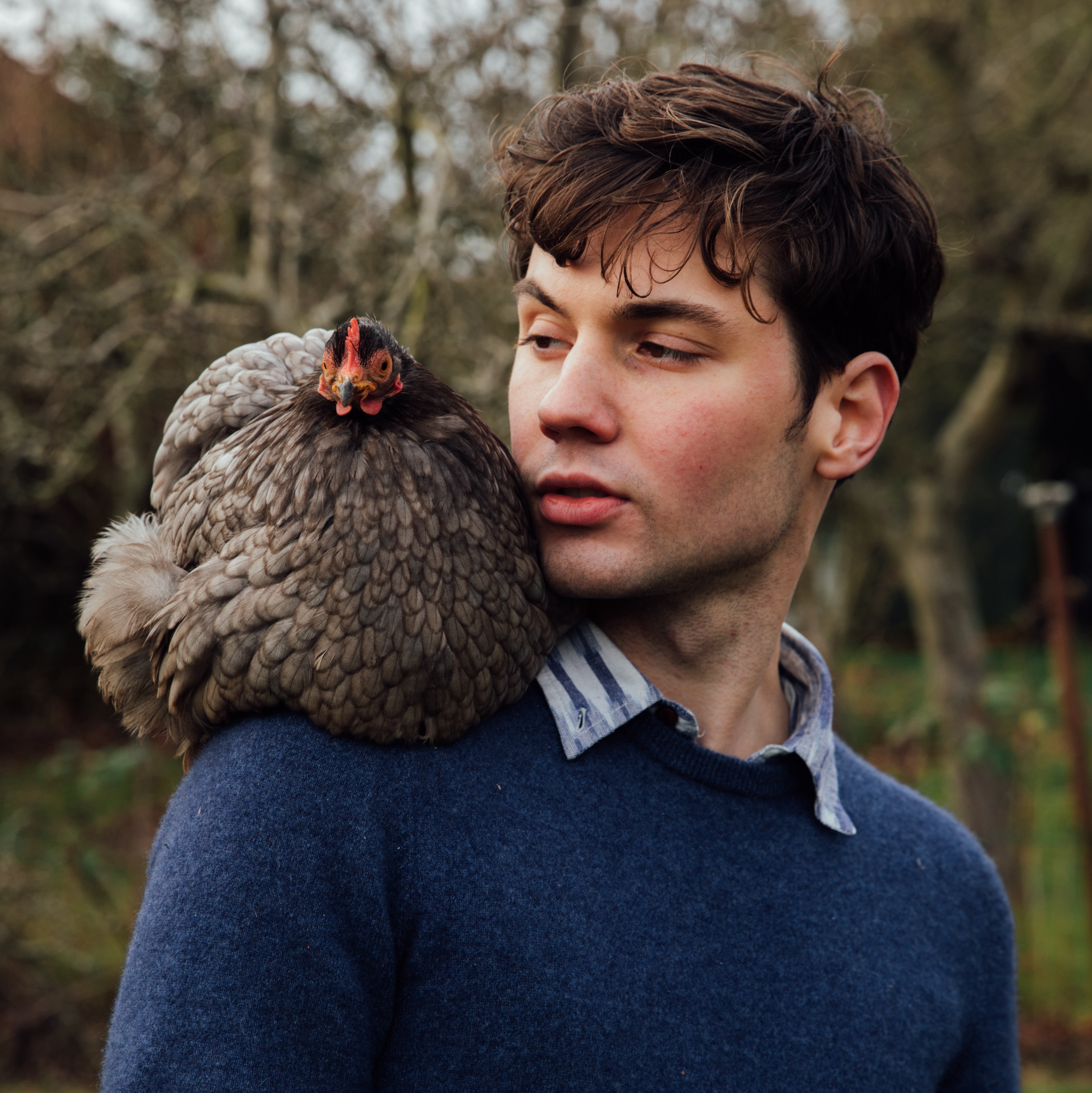Arthur Parkinson: 'Chicken company and chat is underrated. Chickens will accompany you around the garden, happily running to greet you'
Arthur Parkinson shares his tips on keeping both garden and hens happy.

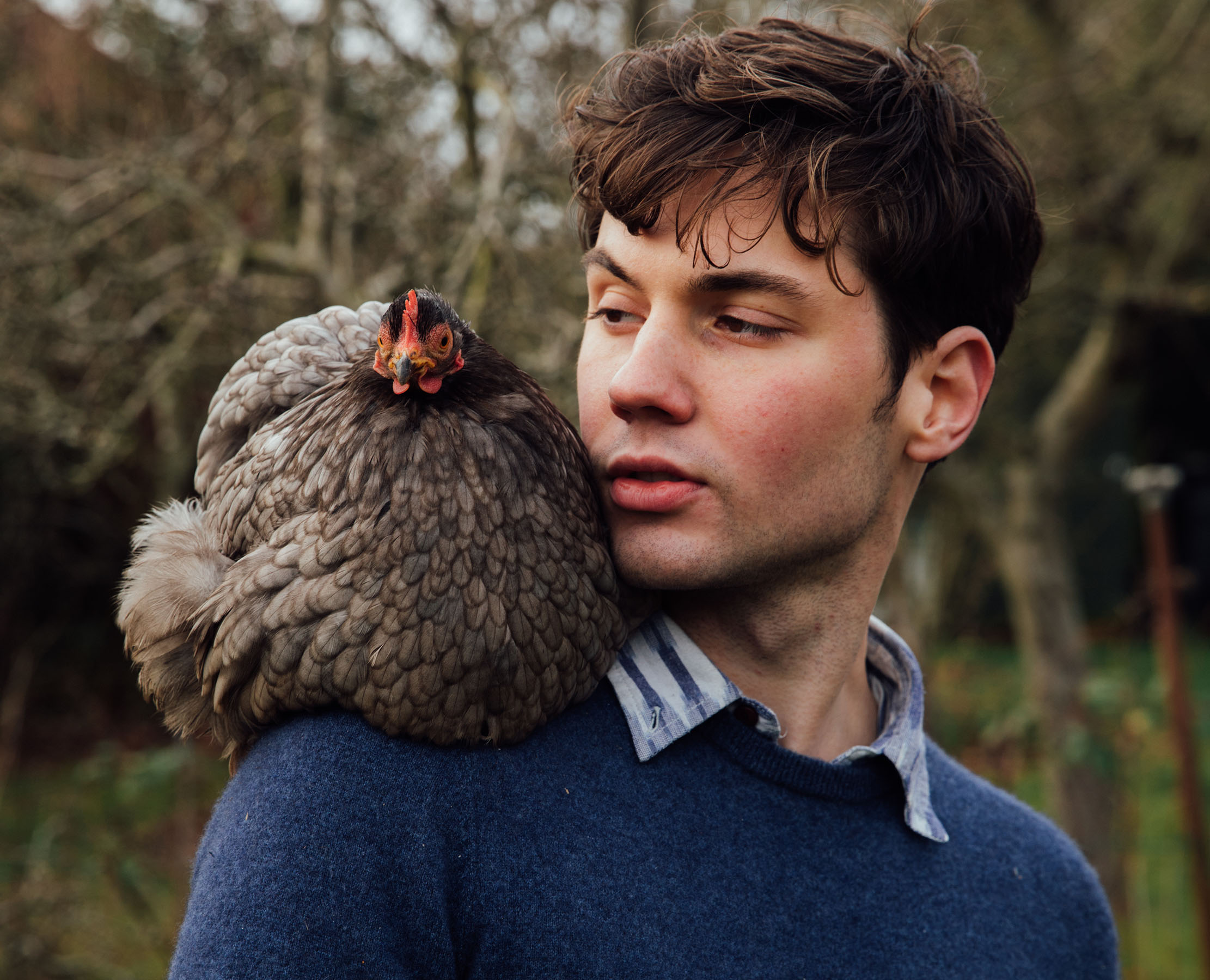
To garden with hens successfully, one has to understand hens. Regardless of their breed and reputed egg-laying numbers, all chickens are ancestral woodland birds at heart, at their happiest when nestling in the leaf litter under a canopy of twigs and leaves where they feel safe. When ranging about a garden, they will view certain areas as places of sanctuary, most notably hedge bottoms and the shelter of large shrubs such as bays and box in particular.
My farmyard heroine, Debo, during her reign as the 11th Duchess of Devonshire, allowed Buff Cochins to range freely at Chatsworth in Derbyshire, but almost all her other breeds were cooped around the cottage garden or in the farmyard, where the current incumbents still breed a number of hens. The matron-faced, huge, pillow-like tangerine Cochins had feathered trousers that deterred them from vigorous scratching. With their calm and gentle demeanour, the Cochins bustled around under the gaze of Elisabeth Frink’s Walking Madonna on the lawn charming the visitors.
At Rousham in Oxfordshire, the flock of aptly named Mille Fleur Barbu d’Uccle bantams cackle their welcome as they range about like a moving flowerbed, usually close to the dense yew hedges. Here, they perform the poultry spa-time ritual that is the dust bath. This requires a hollow of dry soil that is then pecked until its tilth is as fine as a bag of sand, creating a dusty powder room. The earth trickles down into their feathers, helping to deter any mites.
"I have either got better at gardening with hens or perhaps I simply care less."
Not all hens are suited to gardens, however, and many people demonise them. I often wonder if kind-hearted gardeners, new to hen-keeping, have any idea of the soil-flinging potential of ex-battery hens.
The laying breeds — the brown Sussexes, hybrids known as Warrens in my native Nottinghamshire, Burford Browns (famed for their dark-brown eggs) and poised, blue-laying Legbars to name but a few ladies generous with their eggs — are usually best kept in orchards or fenced off in vitally high hen runs to prevent the heartache of festooned and pecked flower beds as well as the horror of a visit from Mr Fox.
When I was little, my mum would get understandably upset at the daily promenade of destruction wreaked by our dinosaur-legged Black Rocks, cuckoo Marans and Welsummers. I didn’t have much of a garden aesthetic as a child and would attempt to deter them using taut plastic pea-netting tied to bamboo canes. The garden looked a little like a prison camp and the hens would flap leisurely over my feeble plant fortresses to continue stripping wallflowers like plumed locusts.
Francine Raymond, doyenne of garden poultry-keeping, showed us the way of using garden cloches, lobster-potting them through her garden over precious plants, and the florist Robin Lucas recently illustrated his hen-proof fence of coppiced hazel that keeps his vegetable garden safe. I have either got better at gardening with hens or perhaps I simply care less.
Exquisite houses, the beauty of Nature, and how to get the most from your life, straight to your inbox.
My tribe of Pekin bantams have the run of my nan’s old garden. They lay small, but very creamy, yolked eggs, albeit seasonally, before they get broody. The bouffant Polands continue laying, but, thankfully, they resist sitting. I grow annual red millet for the hens, which they absolutely love — it’s like chicken caviar.
"It is the love of their company that will make you forgive your hens for any herbaceous losses"
In my experience, tough planting will survive. Oxeye daisies, marjoram, crocosmia, roses, raspberries, fennel, narcissi, buddleia, Japanese anemones, cardoons and rosemary all do well.
If you like to see your birds out and are a true fancier, this, perhaps, is the best approach. Plant what can cope with hens or invest in visually pleasing fencing to save areas that are mulched often and/or planted with lush leaves that don’t taste bitter. Chicken wire, if it is painted black, almost becomes invisible to the eye from a distance and wood chippings will prevent winter mud.
I don’t care for plastic hen runs. Old summerhouses make for good, roomy roosts. It’s vital to raise them off the ground on staddle stones to deter vermin. In the end, it is the love of their company that will make you forgive your hens for any herbaceous losses.
I find that chicken company and chat is underrated. Chickens will accompany you around the garden, happily running to greet you. Even if there are some casualties, it’s worth reminding oneself that their droppings board will, once composted, fuel the growth of pumpkins, dahlias and sweet peas with unparalleled gusto. Thank you girls, you are forgiven!
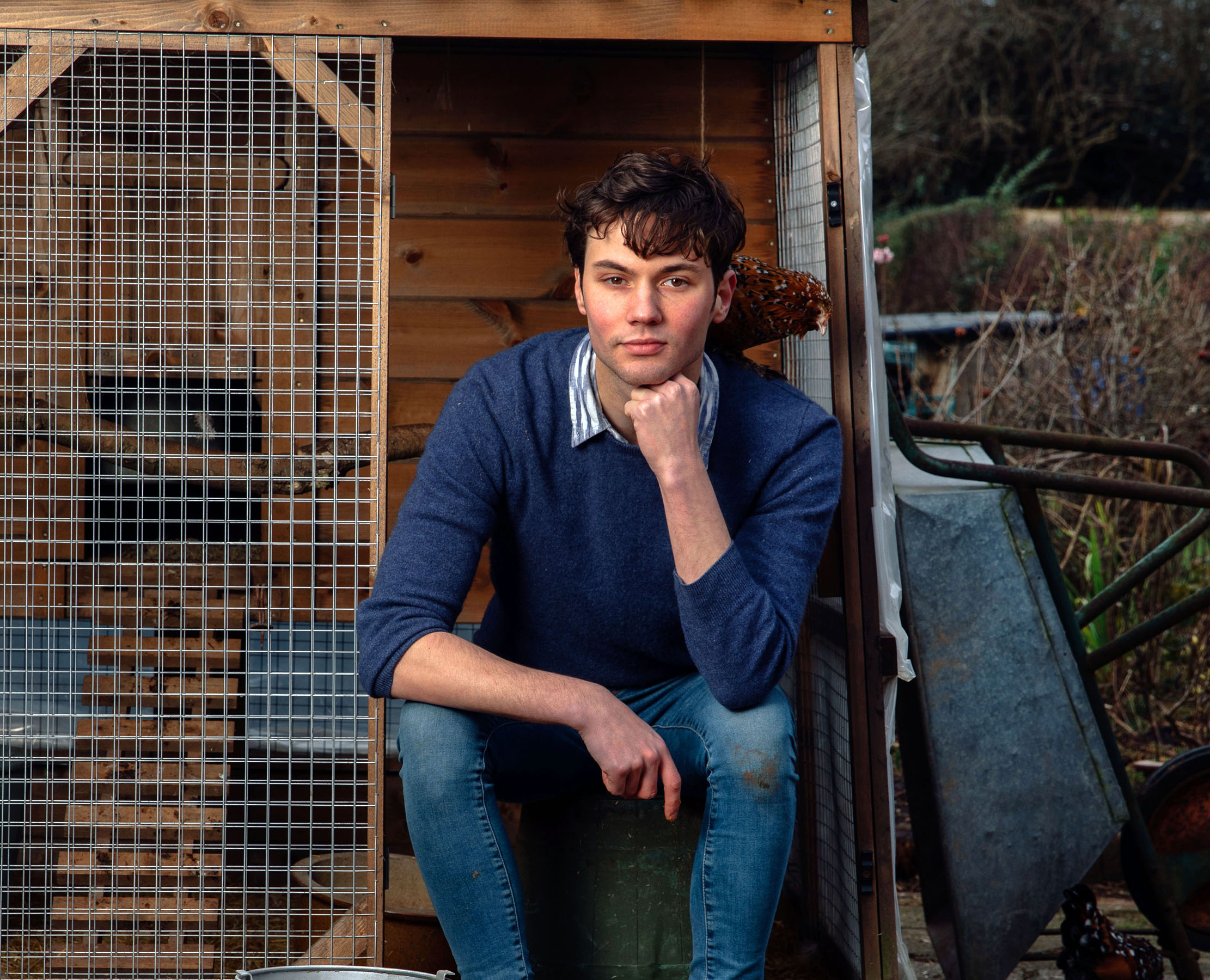
Arthur Parkinson: The 'intensely creative' gardener with 'spectacular flamboyance' rising to the top of the gardening world
Arthur Parkinson is the fresh-faced social media sensation hailed as the rising star of the gardening world. Caroline Donald went
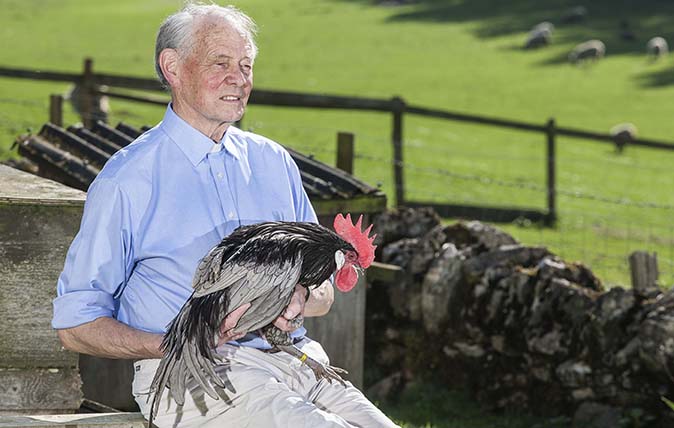
The rare-chicken breeder: 'Watching hens having a dust bath is a delight'
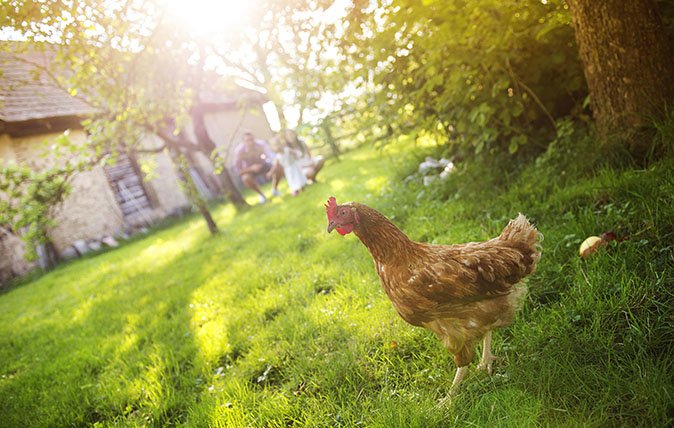
Credit: Alamy Stock Photo
Jason Goodwin: 'Twice I’ve given chase to a fox with a bird in its jaws in broad daylight and won the bird back'
Our spectator columnist muses about the futility of bird ownership, given the large number of predators and their uncanny ability

Credit: Alamy
Alan Titchmarsh: Why I hugged my trees on Christmas Day — and I don't care who knows it
Alan Titchmarsh explains why Christmas is such a very special day in his garden — and how he makes the most
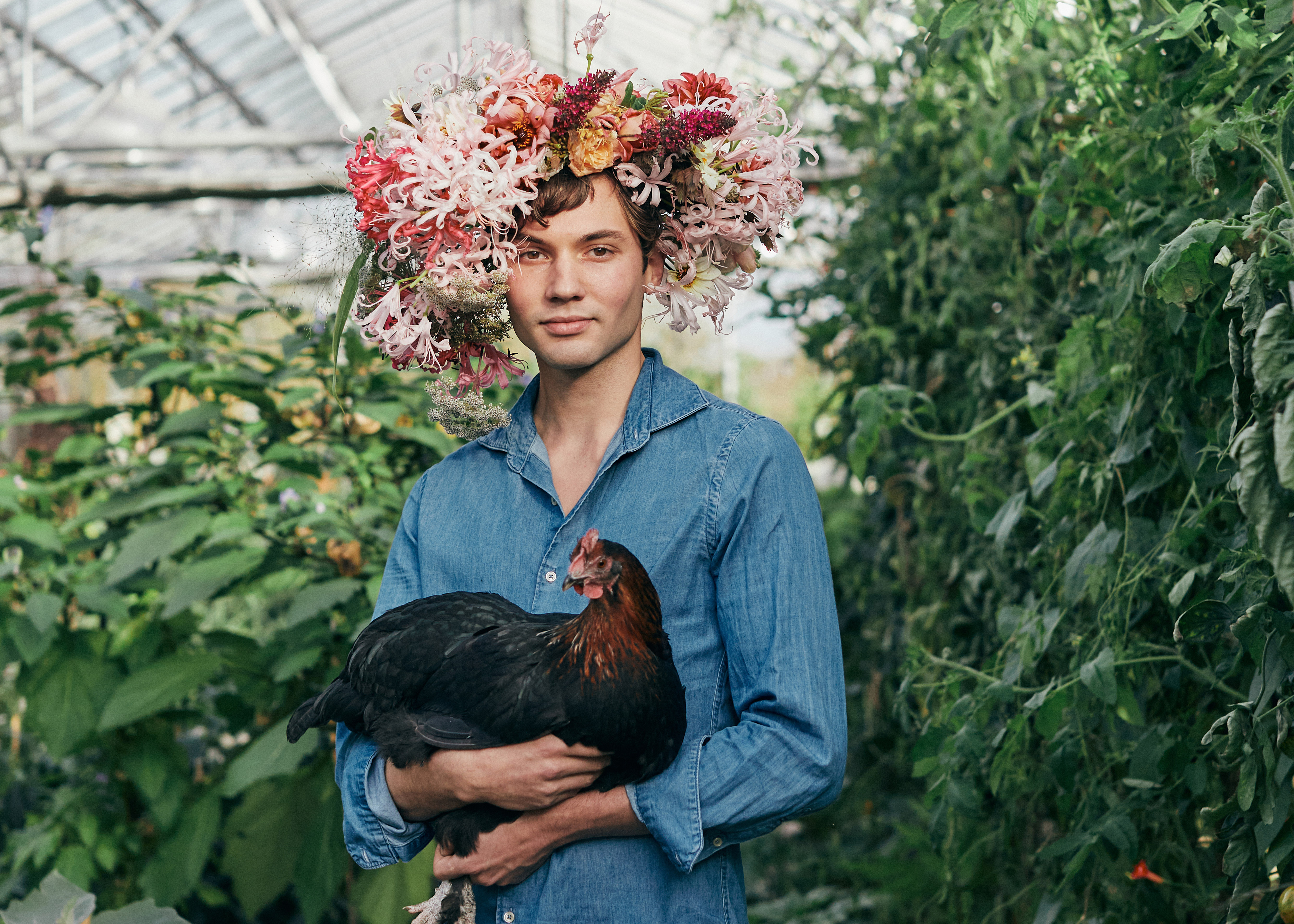
Arthur Parkinson: 'It’s a crime that we have forsaken our wildflower meadows for petrol lawnmowers and Flymos'
Arthur Parkinson is a gardener, writer and broadcaster. He trained at the Royal Botanical Gardens, Kew before working for Sarah Raven and as the head gardener at the Emma Bridgewater factory garden. He is the author of four books including 'Flower Yard: Growing Flamboyant Flowers in Containers'.
